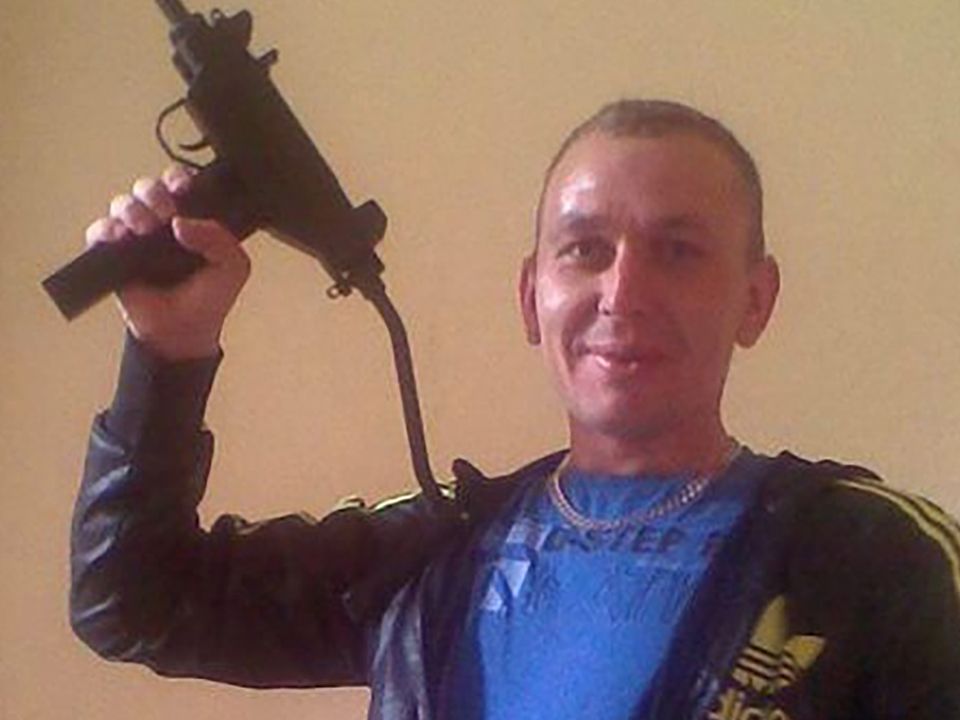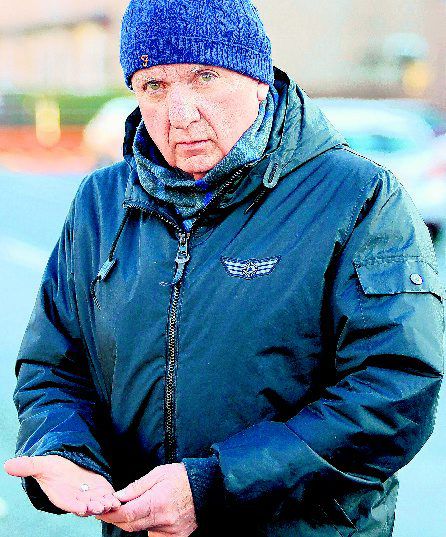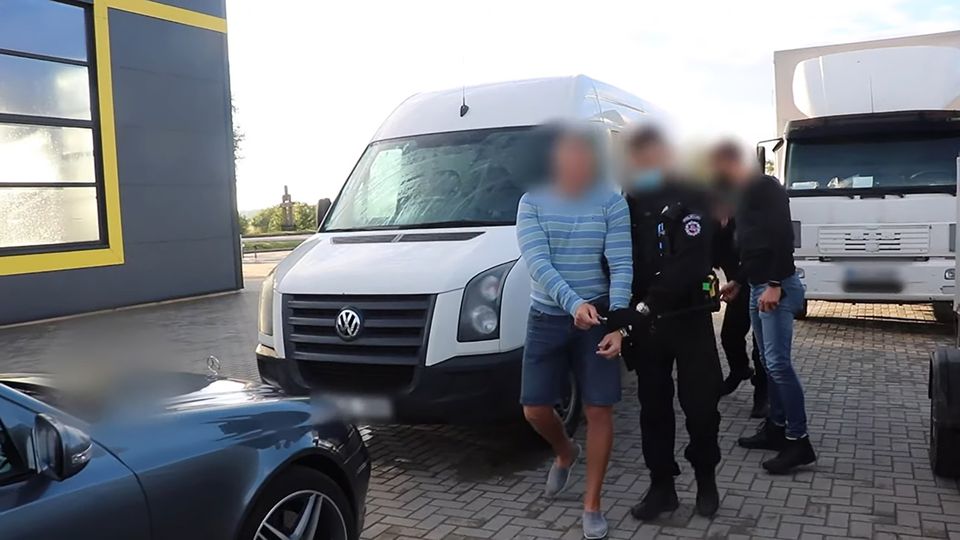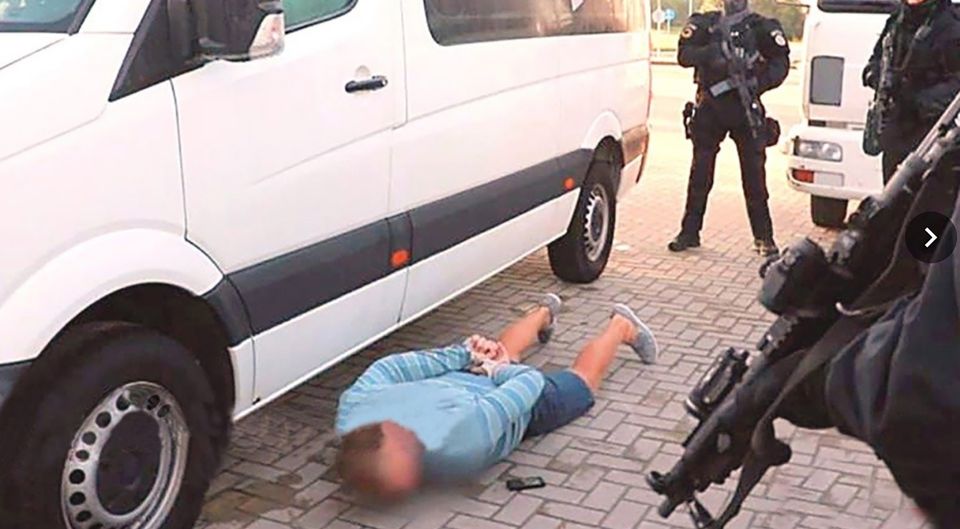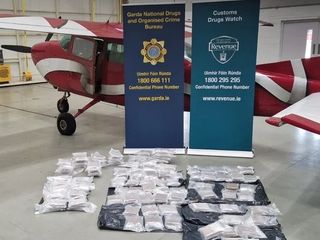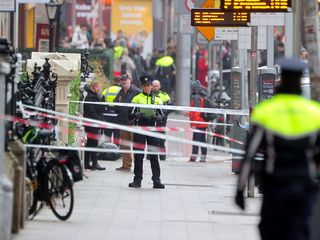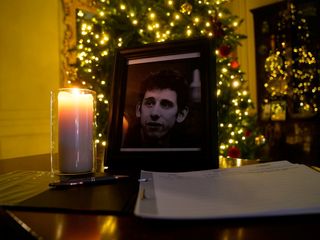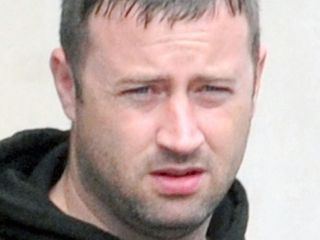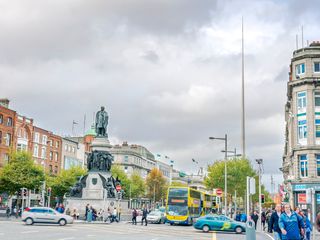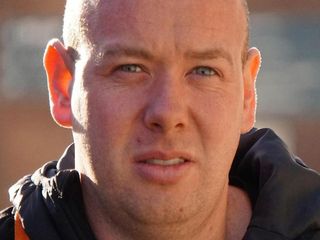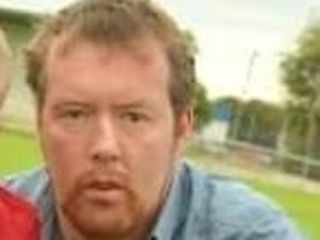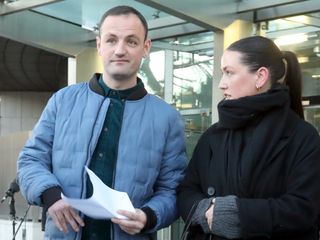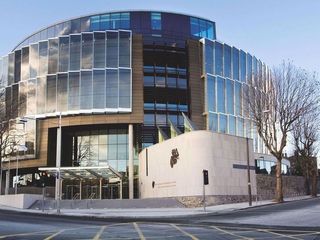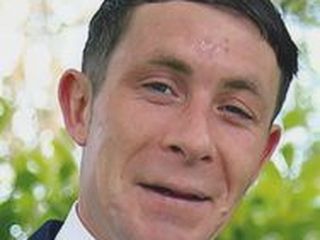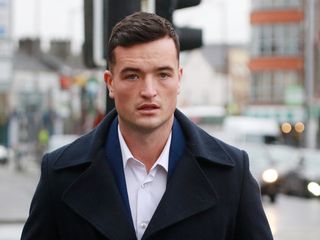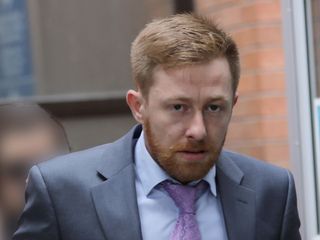- Home >
- Crime >
- Irish Crime
Man trafficked to Ireland as slave, injected with heroin and forced to sell it on streets
Lukas says he was blindfolded each morning and driven to various locations with instructions to sell heroin from 10am until 10pm
Gun-toting Gintas Vengalis was the leader of the people-trafficking and drug gang in Belfast
A man has revealed how he was trafficked to Northern Ireland by an international crime gang as a slave, forcibly injected with heroin and forced to sell it on the streets of Belfast.
He was beaten and ordered to sell the deadly drug around the streets of Ulster for 12 hours every day by his Lithuanian gang bosses - and he names notorious gang leader Gintas Vengalis as the thug who enslaved him though he says some Northern Irish people were also involved.
The gang, as revealed in the Sunday World before, were known as The Russians despite almost exclusively coming from Lithuania and it's believed they are almost solely responsible for the dramatic rise in heroin addicts and heroin-related deaths across Ireland.
And the Belfast gang was led by gun-toting crime lord Vengalis - a convicted heroin dealer who is currently in prison awaiting extradition back to the Baltic state which borders Russia.
The Sunday World revealed as early as 2015 how Vengalis had muscled into the heroin and cocaine dealing business in south Belfast and had been granted permission to do so by the UVF which had caused major friction within the loyalist group.
Now the full details of how hundreds of vulnerable Lithuanians were trafficked to Ireland - north and south - over the last 15 years years to work alongside Vengalis and other gang bosses has been exposed.
Our man Hugh Jordan buys a heroin deal from The Russians
A joint investigation by VICE World News and the Organized Crime and Corruption Reporting Project (OCCRP) was published this week.
The in-depth investigation has uncovered how 'The Russians' managed to take hold of Irish heroin markets, building a highly lucrative business on the back of a workforce of scores of modern-day slaves supplied from 1,00 miles away in Baltic Europe.
They reveal how in 2020 an international effort from law enforcement agencies in Ireland and Lithuania decided to take down the gang after it became clear 'The Russians' had become involved in human trafficking, flooding Ireland with cheap heroin while sending the money back to Lithuania where property was bought to launder the illegal cash.
In August that year armed police, including officers from Europol, carried out a string of raids on properties across the Republic, Northern Ireland and Lithuania to take down the ringleaders of the gang.
Kestutis Klemauskas, the alleged overall boss of ‘The Russians’ gang, is arrested in Lithuania in 2020
Among the 18 people arrested was a Lithuanian businessman in his 30s, Kestutis Klemauskas, the alleged boss of the entire Russians gang, which used job offers to trick scores of unemployed Lithuanians into travelling to Ireland for paid work, only to be coerced into becoming full-time heroin and crack-dealing slaves.
Klemauskas is seen here being arrested in Lithuania but it has emerged he came to Ireland 15 years ago and saw a gap in the drugs market - and proceeded to flood the whole island with cheap heroin using slave labour from his own country.
The raids unearthed a treasure trove of guns and jewellery, as well as thousands of pounds and euros in vacuum-packed bundles, hidden underground.
Those arrested are awaiting extradition for trial in Lithuania on a raft of charges including drug supply and human trafficking, including Vengalis who by that stage was one of Klemauskas's senior 'supervisors'.
The racket - believed to have been carried out by more than one Lithuanian gang, although The Russians were the biggest players - contributed to a rise in heroin injecting and heroin deaths here from the mid-2000 onwards.
It also made life a misery for at least 65 and possibly hundreds of victims of this unique form of modern drug slavery. Meanwhile, those running the gang cleaned their drug profits by investing in property back home in Lithuania.
Kestutis Klemauskas is arrested in Lithuania in 2020
One of those vulnerable Lithuanians spoke to the investigative reporters using the fake name 'Lukas'.
And the details of his life in Belfast are deeply disturbing.
He says he was living in poverty in Lithuania and offered work abroad. When he arrived in Dublin, the gang took his documents and shipped him to a different city, where he sold heroin on the streets under duress.
"They told me that there is a well-paid job in construction, but that it was in Ireland, and if I have the documents, if I want to make money, I can go to Ireland with him the next day," he said.
"I agreed because I wanted to work. I was told that I had to give my details, and better yet, an ID card, because his friends had to buy me plane tickets for which they would pay, and I would later refund them in instalments."
Upon arrival in Belfast, Lukas was brought to a large house with at least three floors. Tired from travelling, he ate and retired to his room, where he went to sleep.
Soon he woke up to the sounds of a man screaming in agony in another room, begging for his life, as other men beat him to near death with what sounded like blunt instruments.
"There were muffled pounding sounds - I was really scared because it all happened suddenly and unexpectedly," he says.
"Then everything fell silent. I can't remember all the small details now, but I was told that I was indebted for the trip from Lithuania, and until I repaid the debt, I would have to live here and pay off my debt by selling their product.
"When I said I wouldn't sell [drugs], and that I was better working in construction, I was told I could only build a tombstone for myself, and if I made trouble I would end up under the ground."
Lukas now understood why the gang's recruiter had been so interested in whether he had relatives or friends in Lithuania. They wanted to know if anyone would come looking if he went missing.
"I was locked in a room and when I said I wanted to go to the toilet, they threw in a bucket. If I talked back, I was beaten. It really got scary for me because I realised that if I disobeyed, they would kill me. That's how I became a slave in Northern Ireland."
Read more
Members of the gang forcibly injected Lukas with heroin during the first two weeks of his captivity so that he couldn't escape. He says he was blindfolded each morning and driven to various locations across Belfast, with instructions to sell heroin from 10am until 10pm.
When the workday ended, someone picked him up, blindfolded him again and brought him back to the large house. Higher-up members of the gang then paid him in heroin, locking him in his room until the next day, when it was time to sell drugs again.
Tadas, a former member of The Russians whose name has been changed for his own safety, told VICE World News and OCCRP: "There were hundreds of people trafficked.
"They [the trafficked people] would get beaten brutally if they did not obey or made mistakes. I saw people dying. I realised that there were horrible things happening. I am not that kind of person."
Tadas says that when he saw the reality of the business he had joined, he fled.
But those at the bottom of the gang's pyramid found themselves trapped.
Gintas Vengalis was a supervisor for the gang's Belfast operation, overseeing several runners, arranging drug shipments and sending money back to Lithuania.
In May 2015, when living in Northern Ireland and going by the nickname 'Russian Anton', he received a 42-month prison sentence after being caught in a PSNI sting under Operation Envimo, which sought to tackle heroin dealing in Belfast.
After his release from prison in 2017, Vengalis appears to have spent some of his time travelling around Ireland, moving between cities where The Russians operated.
But he was arrested during the 2020 raids and now awaits an extradition hearing. Lithuanian authorities are seeking him in relation to charges of human trafficking, criminal association, unlawful possession of narcotic or psychotropic substances for the purposes of distribution, and laundering criminal property.
He faces a maximum sentence of life imprisonment. In his arrest warrant, Vengalis is referenced as being directly responsible for sourcing vulnerable people for the purposes of trafficking into the UK and Ireland. His extradition hearing is due next month.
steven.moore@sundayworld.com

